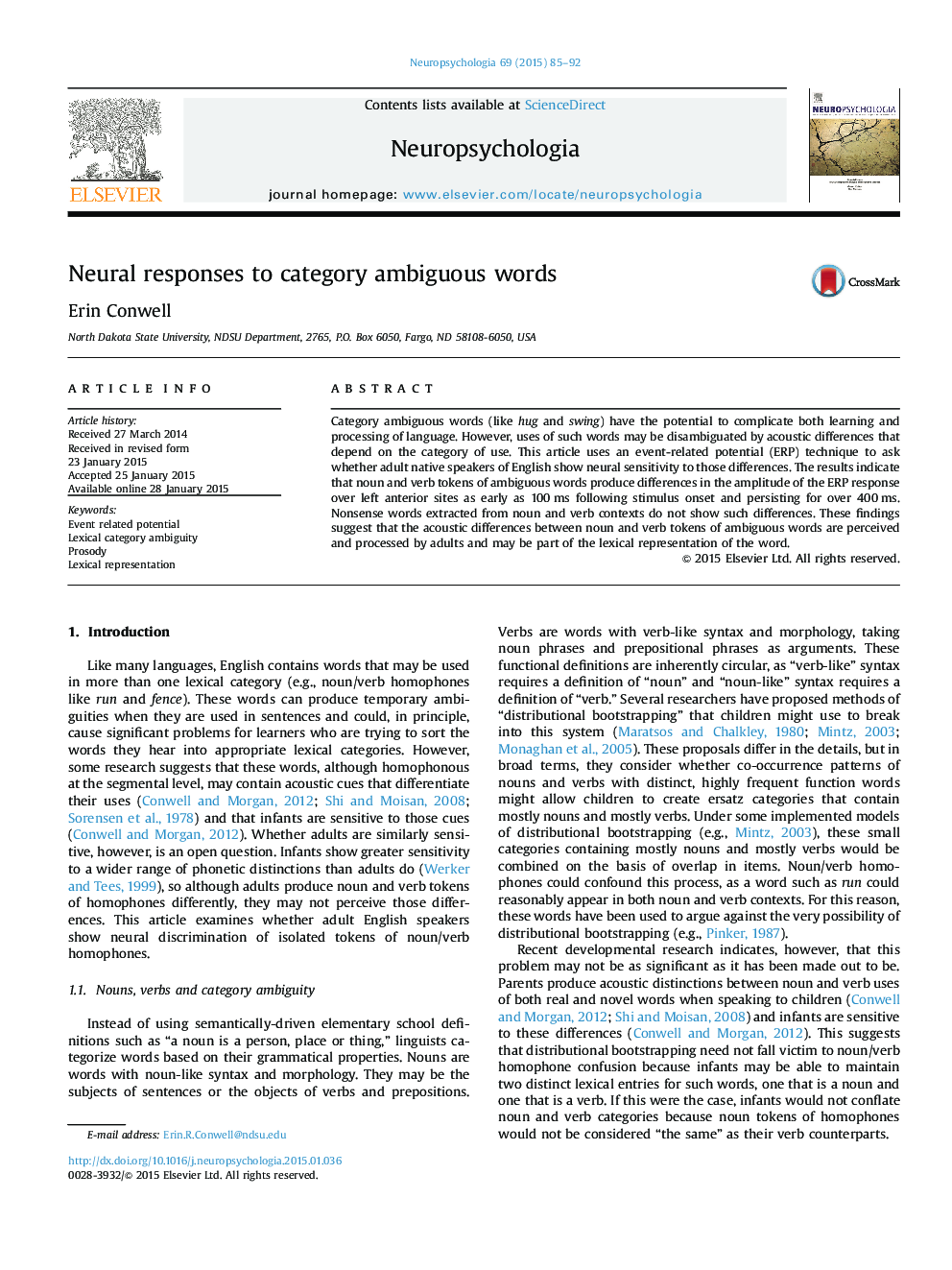| Article ID | Journal | Published Year | Pages | File Type |
|---|---|---|---|---|
| 7320348 | Neuropsychologia | 2015 | 8 Pages |
Abstract
Category ambiguous words (like hug and swing) have the potential to complicate both learning and processing of language. However, uses of such words may be disambiguated by acoustic differences that depend on the category of use. This article uses an event-related potential (ERP) technique to ask whether adult native speakers of English show neural sensitivity to those differences. The results indicate that noun and verb tokens of ambiguous words produce differences in the amplitude of the ERP response over left anterior sites as early as 100Â ms following stimulus onset and persisting for over 400Â ms. Nonsense words extracted from noun and verb contexts do not show such differences. These findings suggest that the acoustic differences between noun and verb tokens of ambiguous words are perceived and processed by adults and may be part of the lexical representation of the word.
Related Topics
Life Sciences
Neuroscience
Behavioral Neuroscience
Authors
Erin Conwell,
